The Ultimate Guide to Choosing the Best Kitchen Faucet for Your Dream Home!
🚰 Dreaming of the perfect kitchen? Your vision might be crystal clear, but there’s one crucial element that often gets overlooked: the kitchen faucet. It’s not just a water dispenser; it’s the heart of your kitchen’s functionality and a key player in its overall aesthetic. But with countless options flooding the market, how do you choose the right one?
Imagine standing in front of a wall of gleaming faucets, each promising to be the perfect match for your dream kitchen. The choices can be overwhelming – pull-down or pull-out? Single or double handle? Brass or stainless steel? 💡 Don’t worry! We’ve got you covered with our comprehensive guide that will transform your faucet-finding journey from frustrating to fantastic. From understanding different types and key features to matching your faucet with your kitchen style and considering eco-friendly options, we’ll walk you through everything you need to know to make an informed decision.
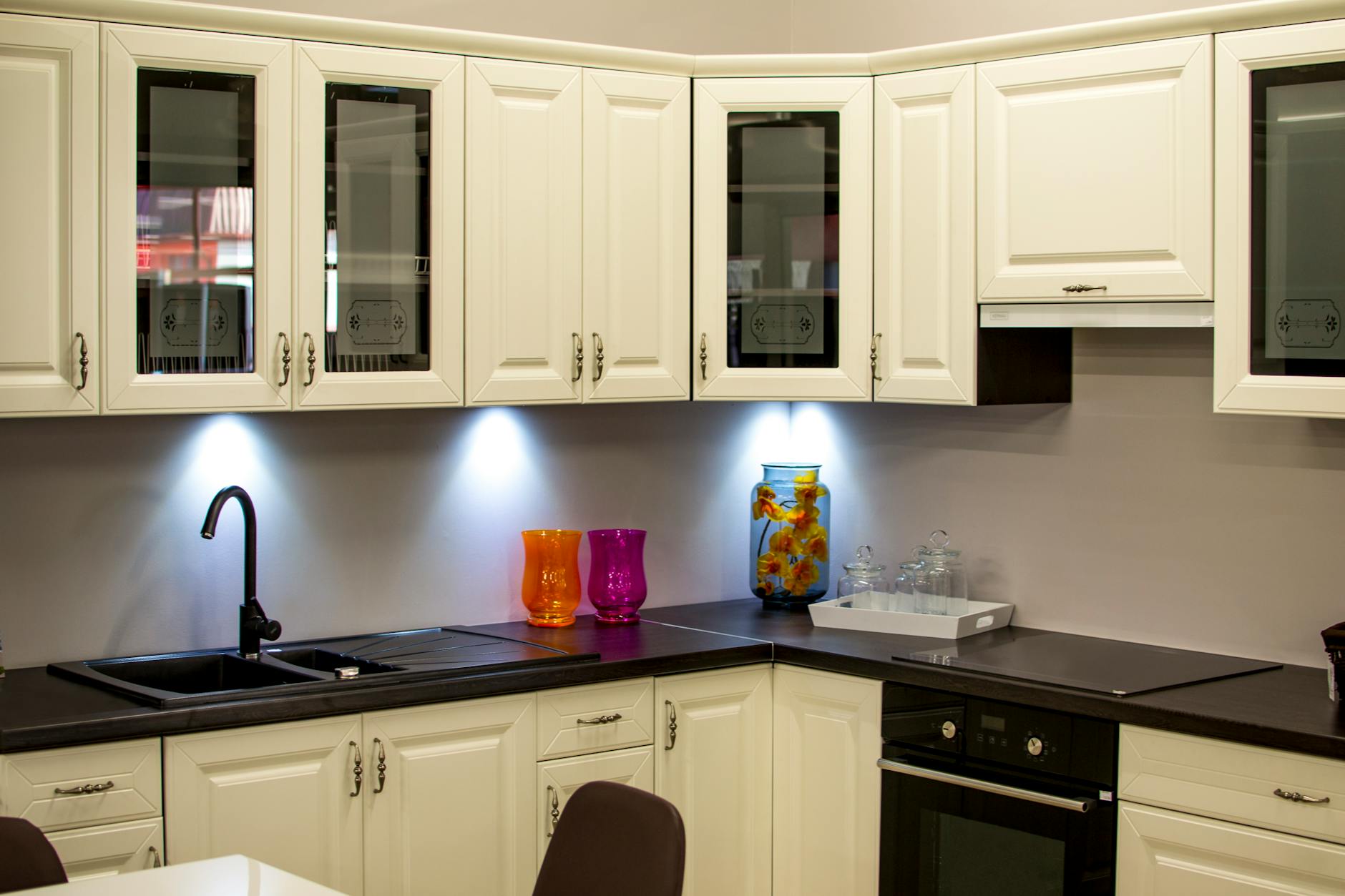
Ready to dive in? Let’s turn on the tap of knowledge and explore the world of kitchen faucets, starting with understanding the various types available in the market today.
Understanding Kitchen Faucet Types

When selecting the perfect kitchen faucet for your dream home, it’s crucial to familiarize yourself with the various types available. Let’s explore the most common kitchen faucet types and their unique features.
Single-handle vs. double-handle faucets
| Feature | Single-handle | Double-handle |
|---|---|---|
| Control | One lever for temperature and flow | Separate controls for hot and cold water |
| Space | Compact design, ideal for small sinks | Requires more space, suits larger sinks |
| Ease of use | Simple one-handed operation | May require two hands for adjustment |
| Precision | Less precise temperature control | More precise temperature control |
Pull-down and pull-out sprayers
These versatile faucet types offer enhanced functionality:
- Pull-down sprayers: Feature a high-arc spout with a spray head that pulls straight down
- Pull-out sprayers: Have a lower profile with a spray head that pulls out towards you
Both types provide excellent maneuverability for cleaning and rinsing tasks.
Touchless faucets
Touchless faucets use motion sensors to activate water flow, offering:
- Improved hygiene by reducing contact with potentially contaminated surfaces
- Water conservation by automatically shutting off when not in use
- Convenience for hands-free operation
Pot fillers
Pot fillers are specialized faucets designed for filling large pots:
- Typically installed near the stove
- Feature a long, articulated arm for easy reach
- Eliminate the need to carry heavy water-filled pots across the kitchen
Now that we’ve covered the main kitchen faucet types, let’s explore the key features you should consider when making your selection.

Key Features to Consider
When selecting the perfect kitchen faucet for your dream home, several key features demand your attention. Let’s explore these crucial aspects to ensure you make an informed decision.
A. Water flow rate and pressure
The ideal flow rate for a kitchen faucet ranges from 1.5 to 2.2 gallons per minute (GPM). Consider your household’s water usage habits and local regulations when choosing. Here’s a comparison of flow rates:
| Flow Rate (GPM) | Suitable for |
|---|---|
| 1.5 – 1.8 | Water-conscious households |
| 1.8 – 2.0 | Average families |
| 2.0 – 2.2 | Large families or frequent cooks |
B. Spout height and reach
A taller spout offers more clearance for large pots, while a longer reach provides better sink coverage. Measure your sink size and cabinet clearance to determine the optimal dimensions.
C. Finish options and durability
Choose a finish that complements your kitchen’s aesthetics and withstands daily use. Popular options include:
- Stainless steel (durable and easy to clean)
- Chrome (affordable and shiny)
- Brushed nickel (fingerprint-resistant)
- Oil-rubbed bronze (elegant and unique)
D. Easy-to-clean surfaces
Look for faucets with smooth surfaces and fingerprint-resistant finishes to minimize cleaning time. Some brands offer special coatings that repel water spots and mineral buildup.
E. Noise reduction technology
For a peaceful kitchen environment, consider faucets with noise-reducing features like ceramic disc valves or silicone spray heads. These technologies minimize water noise and prevent dripping.
Now that we’ve covered the essential features to consider, let’s explore how to match your chosen faucet to your kitchen’s unique style.

Matching Your Faucet to Your Kitchen Style
Now that we’ve covered the key features to consider, let’s explore how to match your faucet to your kitchen’s style. The right faucet can elevate your kitchen’s aesthetics and tie the entire design together.
Modern and Minimalist Designs
For contemporary kitchens, sleek and streamlined faucets are the way to go. Look for:
- Clean lines and geometric shapes
- Chrome or brushed nickel finishes
- Touch-activated or motion-sensor options
Traditional and Classic Options
If your kitchen exudes timeless elegance, consider:
- Ornate designs with curved spouts
- Oil-rubbed bronze or polished brass finishes
- Separate hot and cold handles
Industrial-Inspired Faucets
For an urban, loft-like feel:
- Choose faucets with exposed pipes
- Opt for matte black or stainless steel finishes
- Look for pull-down sprayers with spring designs
Farmhouse and Rustic Choices
To complement a cozy, country-style kitchen:
- Select faucets with a bridge design
- Consider copper or antique brass finishes
- Look for cross-handle options
| Style | Recommended Finishes | Popular Features |
|---|---|---|
| Modern | Chrome, Brushed Nickel | Touch-activated, Single-handle |
| Traditional | Oil-rubbed Bronze, Polished Brass | Separate handles, Curved spouts |
| Industrial | Matte Black, Stainless Steel | Pull-down sprayers, Exposed pipes |
| Farmhouse | Copper, Antique Brass | Bridge design, Cross-handles |
Remember, while matching your faucet to your kitchen style is important, it’s equally crucial to consider the material of your faucet for longevity and durability.
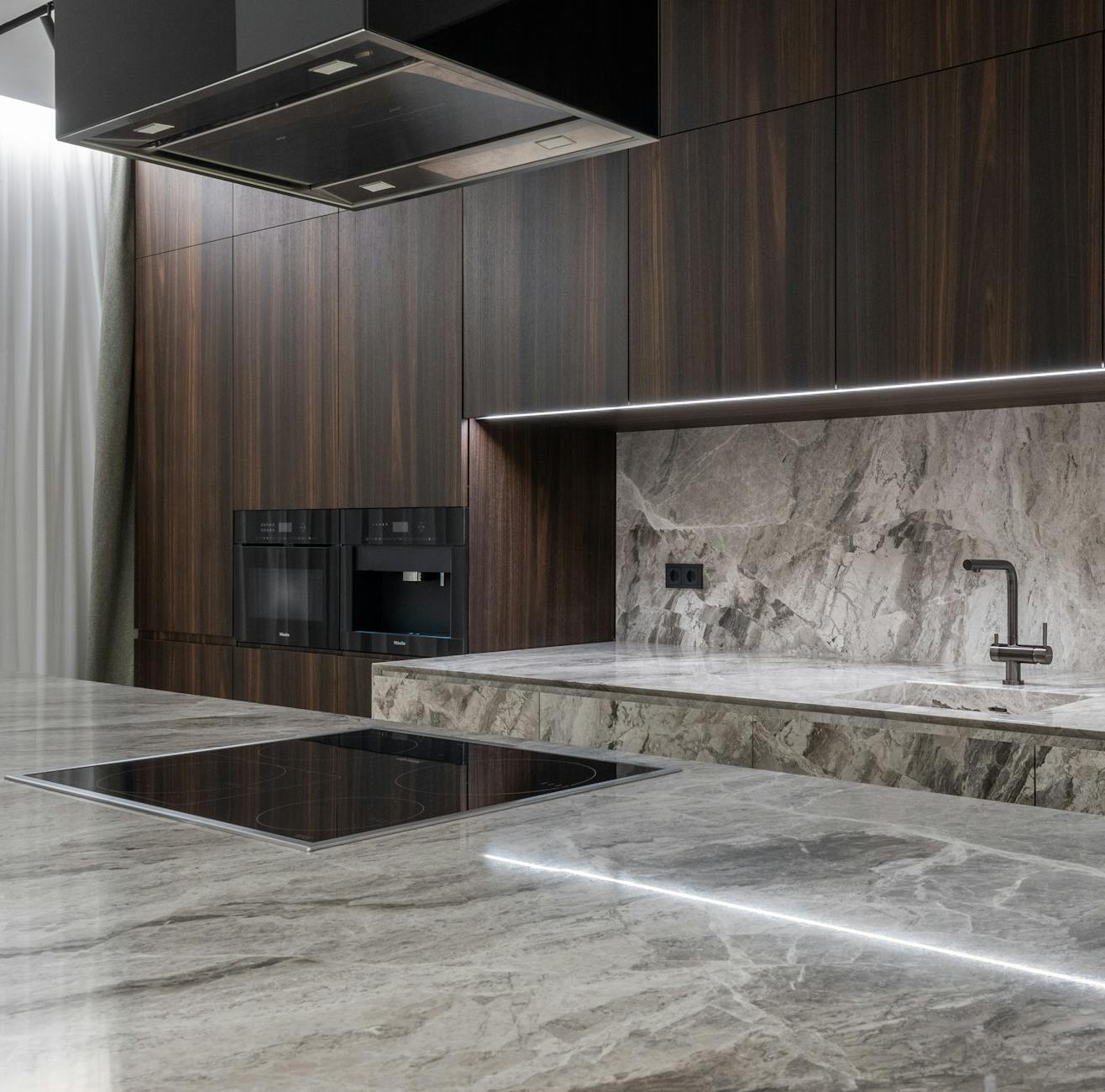
Material Matters: Choosing the Right Faucet Material
When selecting a kitchen faucet, the material plays a crucial role in determining its durability, appearance, and overall performance. Let’s explore the most common materials used in kitchen faucets and their characteristics:
A. Brass: durability and longevity
Brass faucets are renowned for their exceptional durability and longevity. This sturdy material resists corrosion and can withstand daily use for years. While brass faucets may come with a higher price tag, their long-lasting nature makes them a cost-effective choice in the long run.
B. Stainless steel: corrosion resistance
Stainless steel faucets offer excellent corrosion resistance, making them ideal for kitchens with hard water. They’re also easy to clean and maintain their shine over time. Stainless steel is a popular choice for modern kitchen designs due to its sleek appearance.
C. Zinc alloy: affordability and style
Zinc alloy faucets provide a balance between affordability and style. They offer a wide range of finishes and designs, allowing you to find a faucet that matches your kitchen aesthetic without breaking the bank.
D. Plastic: budget-friendly options
Plastic faucets are the most budget-friendly option available. While they may not be as durable as metal alternatives, they can be suitable for low-traffic kitchens or as temporary solutions.
Here’s a comparison table of the different materials:
| Material | Durability | Corrosion Resistance | Cost | Style Options |
|---|---|---|---|---|
| Brass | High | Good | High | Moderate |
| Stainless Steel | High | Excellent | Moderate | High |
| Zinc Alloy | Moderate | Good | Low | High |
| Plastic | Low | Moderate | Very Low | Limited |
When choosing your faucet material, consider factors such as your budget, kitchen usage, and design preferences. Each material offers unique benefits, so select the one that best aligns with your needs and kitchen style.

Installation and Compatibility
Now that we’ve explored various aspects of kitchen faucets, let’s delve into the crucial topic of installation and compatibility. Understanding these factors will ensure a seamless integration of your chosen faucet into your kitchen.
Deck-mounted vs. Wall-mounted Faucets
| Feature | Deck-mounted | Wall-mounted |
|---|---|---|
| Installation | On sink or countertop | Above sink on wall |
| Flexibility | More common, fits most sinks | Requires specific plumbing |
| Space-saving | Takes up counter space | Frees up counter space |
| Cleaning | Easier to clean around | More challenging to clean |
Sink Hole Configurations
The number of holes in your sink or countertop plays a crucial role in faucet compatibility:
- Single-hole: Ideal for single-handle faucets
- Three-hole: Suits widespread faucets or single-handle with deck plate
- Four-hole: Accommodates faucets with separate sprayer or soap dispenser
DIY-friendly Options
For the handy homeowner, consider these DIY-friendly faucet options:
- Pre-assembled faucets
- Quick-connect hoses
- Tool-free installation systems
- Clear, detailed installation instructions
Professional Installation Considerations
While many faucets can be installed DIY, some situations warrant professional installation:
- Complex plumbing configurations
- Wall-mounted faucets
- Older homes with outdated plumbing
- High-tech faucets with electrical components
Next, we’ll explore budget considerations to help you make an informed decision that balances quality and affordability.

Budget Considerations
When choosing the best kitchen faucet for your dream home, it’s essential to consider your budget and find the perfect balance between cost and quality. Let’s explore different price ranges and their offerings:
A. Entry-level faucets: balancing cost and quality
Entry-level faucets are an excellent choice for budget-conscious homeowners. While they may lack some advanced features, many affordable options still offer decent quality and functionality.
B. Mid-range options: best value for money
Mid-range faucets often provide the best balance between cost and features, making them a popular choice for many homeowners.
C. High-end faucets: luxury features and materials
For those seeking the ultimate in style and functionality, high-end faucets offer premium materials and cutting-edge features.
D. Long-term cost savings
When considering your budget, it’s important to factor in long-term savings. Here’s a comparison of different price ranges and their potential long-term benefits:
| Price Range | Initial Cost | Durability | Features | Long-term Savings |
|---|---|---|---|---|
| Entry-level | Low | Moderate | Basic | Moderate |
| Mid-range | Medium | Good | Advanced | Good |
| High-end | High | Excellent | Premium | Excellent |
Consider the following factors when budgeting for your kitchen faucet:
- Warranty coverage
- Energy efficiency
- Water-saving capabilities
- Maintenance requirements
By carefully weighing these factors, you can find a faucet that not only fits your current budget but also provides long-term value for your investment. Next, we’ll explore water efficiency and eco-friendly options to help you make an environmentally conscious choice.
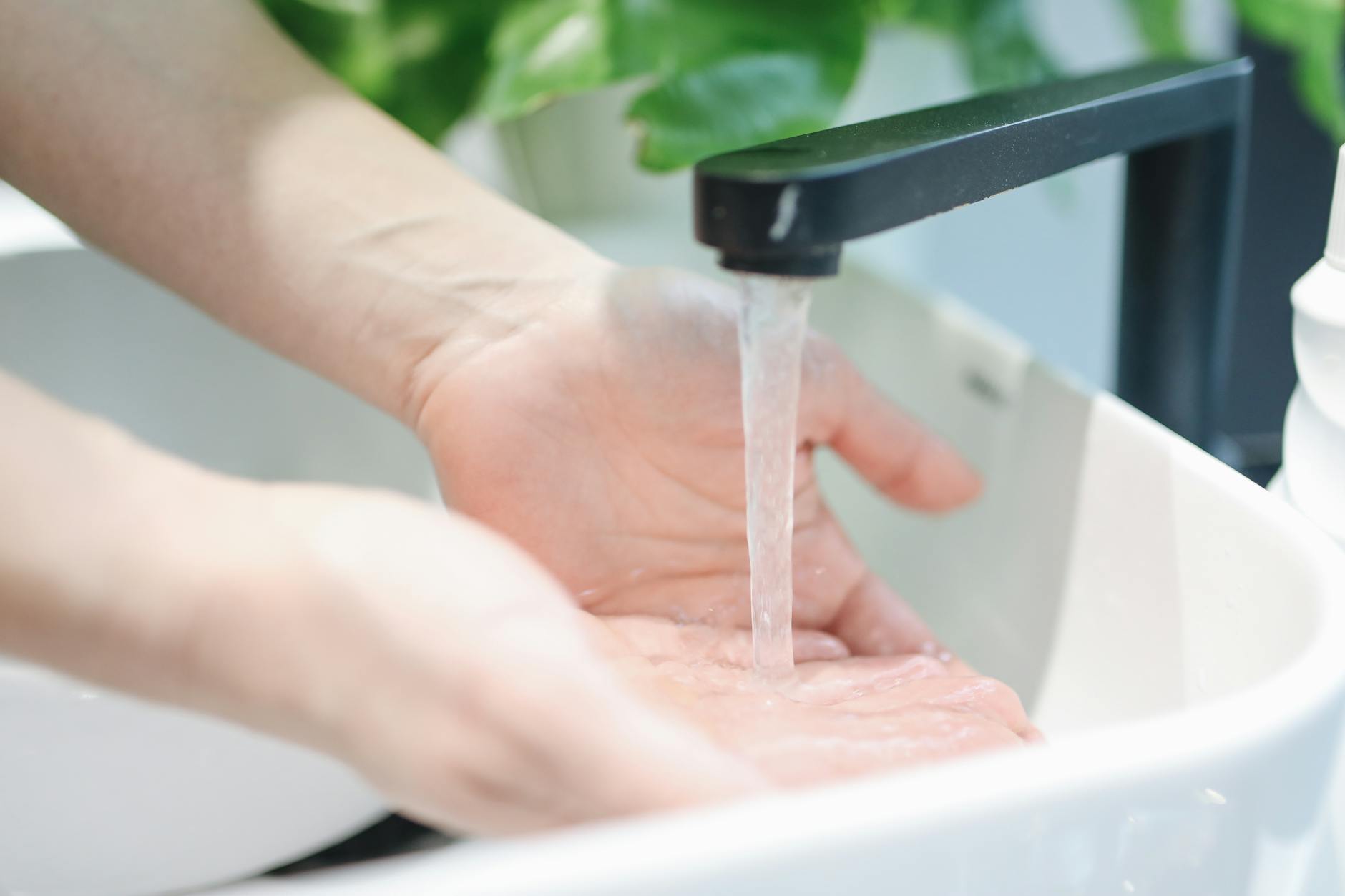
Water Efficiency and Eco-Friendly Options
Now that we’ve explored various aspects of kitchen faucets, let’s focus on water efficiency and eco-friendly options. As environmental concerns grow, choosing a water-saving faucet becomes increasingly important for both sustainability and cost savings.
WaterSense Certified Faucets
WaterSense is a program sponsored by the U.S. Environmental Protection Agency that certifies water-efficient products. Here’s why you should consider a WaterSense certified faucet:
- Reduces water usage by at least 20% compared to standard models
- Maintains performance while conserving water
- Helps lower utility bills and reduces strain on water resources
Flow Restrictors and Aerators
These simple devices can significantly impact water consumption:
| Feature | Function | Benefits |
|---|---|---|
| Flow Restrictors | Limit water flow rate | Reduces water usage without compromising pressure |
| Aerators | Mix air with water | Creates a fuller stream with less water |
Low-Flow vs. High-Flow Faucets
Choosing between low-flow and high-flow faucets depends on your needs:
- Low-flow faucets (1.5 GPM or less):
- Ideal for everyday tasks like handwashing
- Significant water savings over time
- High-flow faucets (2.2 GPM or more):
- Better for filling large pots quickly
- Consider models with adjustable flow rates for versatility
Energy-Saving Features in Touchless Models
Touchless faucets not only offer convenience but can also contribute to water and energy savings:
- Automatic shut-off prevents water waste
- Some models have temperature memory to reduce energy used for reheating
- Solar-powered options further reduce energy consumption
By considering these eco-friendly options, you can choose a kitchen faucet that not only enhances your home but also contributes to a more sustainable future. Next, we’ll explore the importance of brands and warranties in making your final decision.
Brands and Warranties
When it comes to kitchen faucets, choosing a reputable brand and understanding warranty coverage can make a significant difference in your long-term satisfaction. Let’s explore the key aspects of brands and warranties to help you make an informed decision.
Top Kitchen Faucet Brands
Several brands have established themselves as leaders in the kitchen faucet industry. Here’s a comparison of some top contenders:
| Brand | Known For | Price Range |
|---|---|---|
| Delta | Innovation and technology | Mid to high |
| Moen | Durability and style | Mid to high |
| Kohler | Luxury and design | High |
| Kraus | Affordable quality | Low to mid |
| Grohe | European craftsmanship | Mid to high |
Comparing Warranty Coverage
Warranty coverage can vary significantly between brands. Most reputable manufacturers offer limited lifetime warranties on their faucets, covering defects in materials and workmanship. However, the specifics can differ:
- Coverage duration
- Parts included (e.g., finish, cartridge, electronic components)
- Labor costs
- Transferability to new homeowners
Customer Support and Service
Excellent customer support can make a world of difference when issues arise. Consider:
- Availability of phone, email, and chat support
- Response time and problem resolution
- User reviews and ratings of customer service experiences
Availability of Replacement Parts
Easy access to replacement parts can extend your faucet’s lifespan. Look for brands that:
- Offer readily available replacement parts
- Provide clear instructions for part replacement
- Support older models with continued part production
Now that we’ve covered brands and warranties, let’s explore some budget-friendly options that don’t compromise on quality.
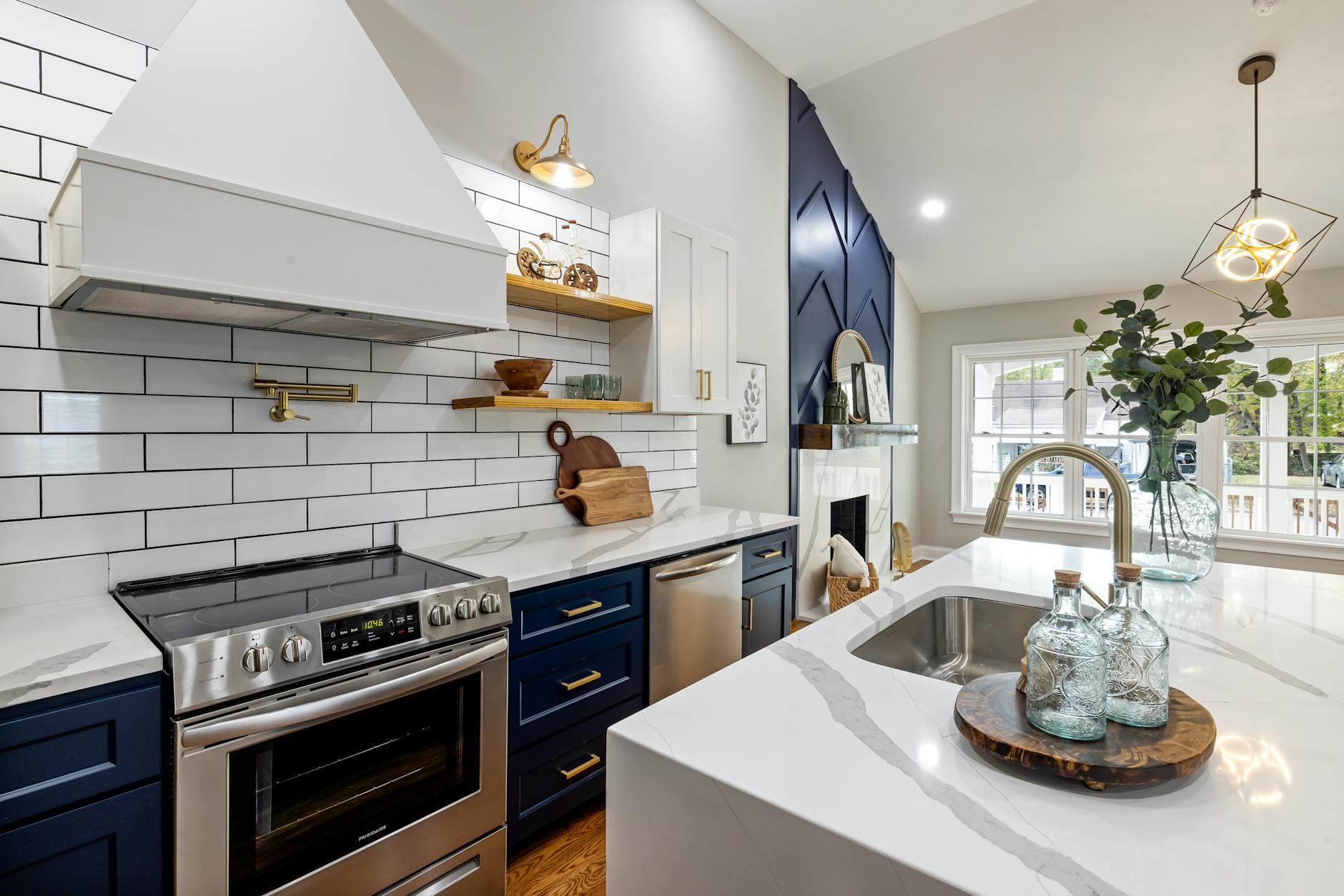
Selecting the perfect kitchen faucet for your dream home involves careful consideration of various factors. From understanding different faucet types to evaluating key features, matching your kitchen style, and choosing the right material, each aspect plays a crucial role in finding the ideal fixture. Don’t forget to consider installation requirements, budget constraints, water efficiency options, and the reputation of brands and their warranties.
By taking the time to research and weigh your options, you’ll be well-equipped to choose a kitchen faucet that not only meets your functional needs but also enhances the overall aesthetic of your space. Remember, the right faucet can be the finishing touch that transforms your kitchen into the heart of your dream home. Make an informed decision and enjoy the perfect blend of style and functionality in your culinary haven for years to come.

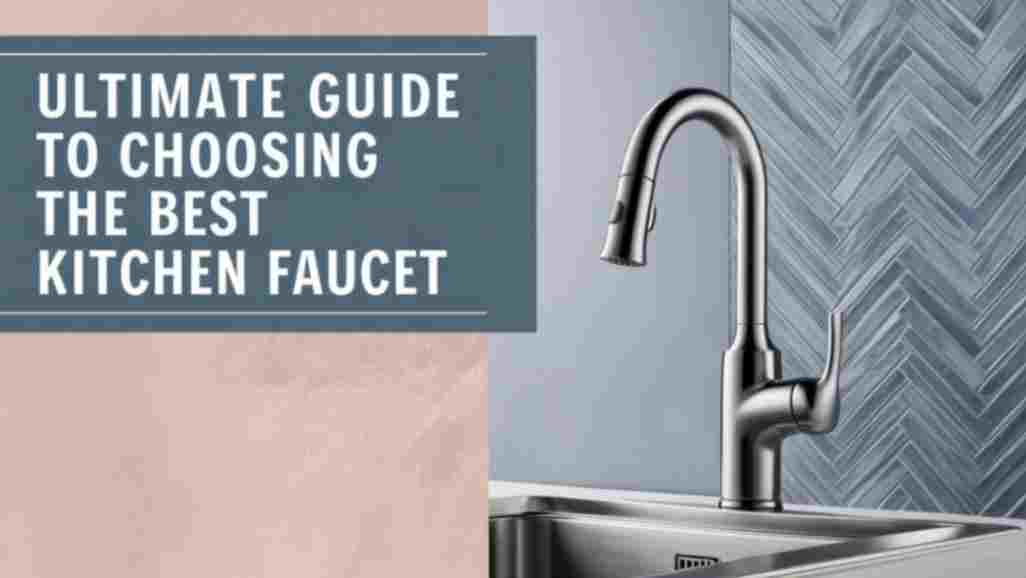
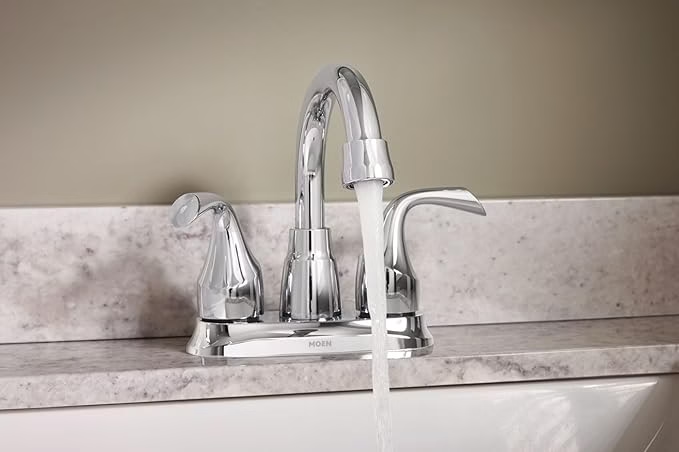
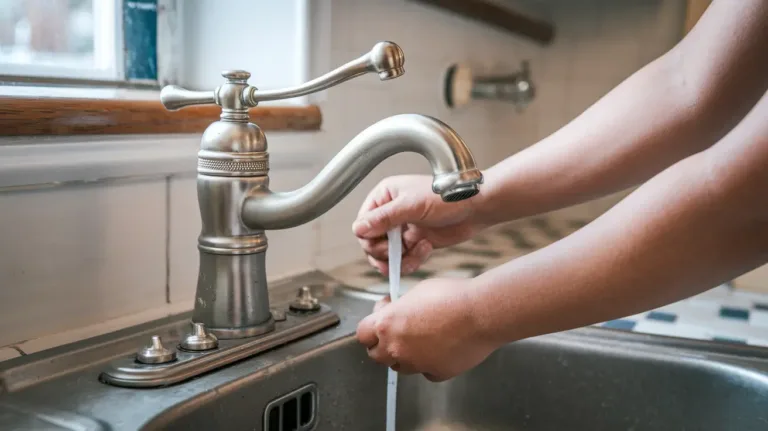
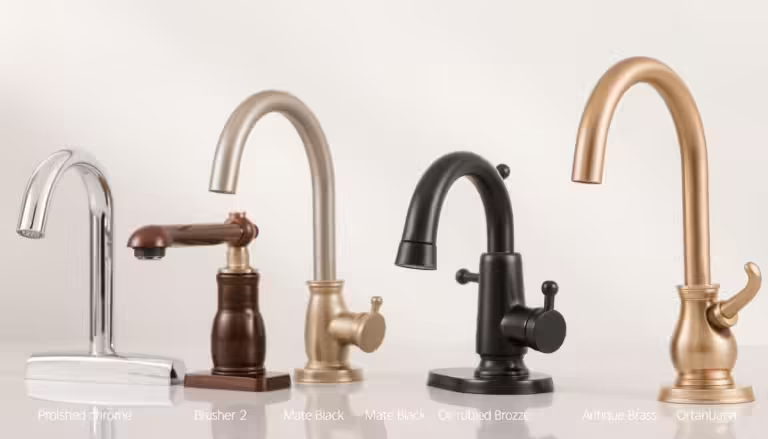
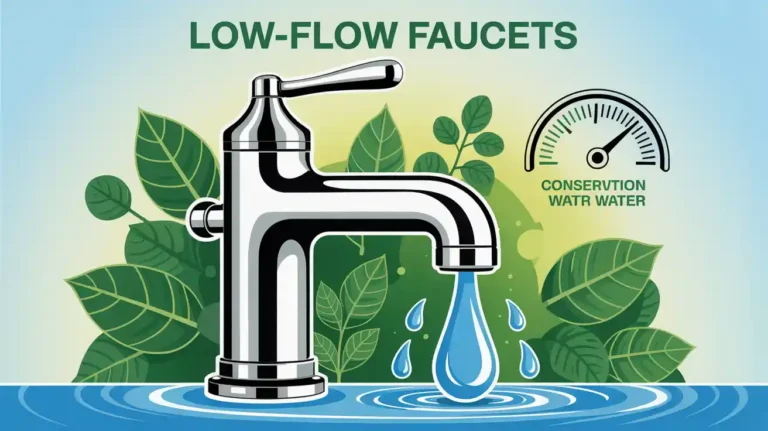
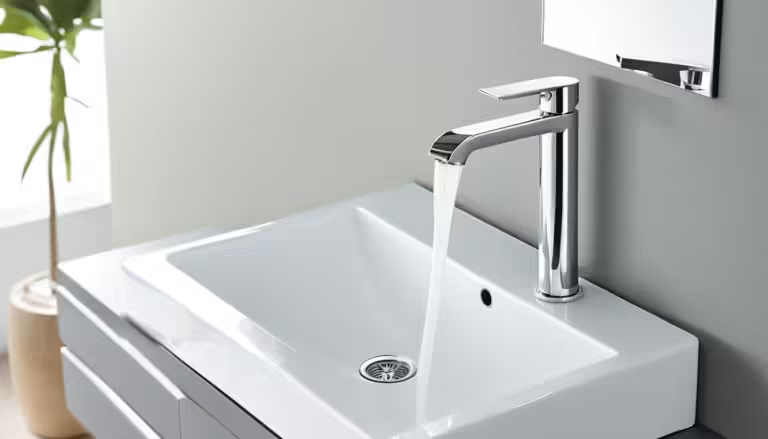
One Comment